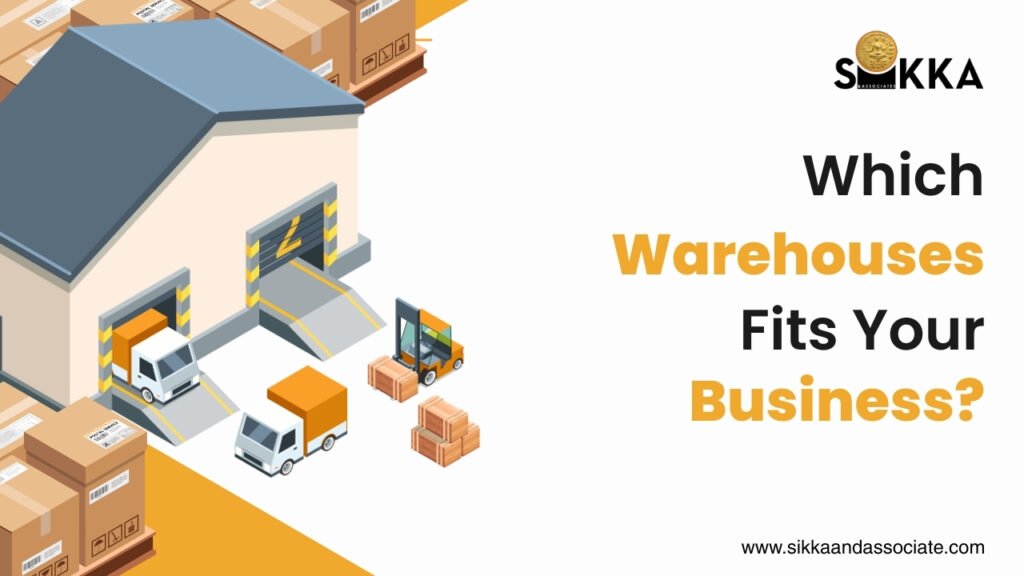Types of Warehouses and Their Suitability According to Businesses
Warehousing is a crucial part of the supply chain. Choosing the right type of warehouse can significantly improve operational efficiency, reduce costs, and enhance customer satisfaction. Different businesses have varied storage requirements based on their scale, industry, and logistics model. In this blog, we explore major warehouse types and evaluate their suitability for different business needs.
1. Private Warehouses
Private warehouses are owned and operated by a company to store its own inventory. These facilities are typically used by large retailers, manufacturers, or distributors.
Best suited for:
-
Large-scale manufacturers
-
Retail chains
-
E-commerce giants
Advantages:
-
Full control over operations
-
Custom-built for specific product types
-
Better integration with internal supply chain systems
2. Public Warehouses
Public warehouses are available for rent by businesses needing temporary storage solutions. These are run by third-party logistics providers.
Best suited for:
-
Small to medium-sized businesses
-
Seasonal inventory needs
-
Startups and import/export businesses
Advantages:
-
Low upfront cost
-
Flexible leasing terms
-
Suitable for short-term storage
3. Bonded Warehouses
These are government-licensed facilities where imported goods can be stored without paying import duties until they are released.
Best suited for:
-
Import/export businesses
-
International traders
-
Businesses needing delayed customs clearance
Advantages:
-
Duty-free storage
-
Secure storage for high-value items
-
Ideal for global logistics
4. Smart Warehouses
Smart warehouses use automation, robotics, and data analytics to manage storage and distribution efficiently. These modern types of warehouses are ideal for technology-driven supply chains.
Best suited for:
-
E-commerce platforms
-
Tech and electronics companies
-
High-volume fulfillment centers
Advantages:
-
Faster order processing
-
Real-time inventory management
-
Reduced human error
5. Distribution Centers
Unlike traditional storage facilities, distribution centers are designed for rapid movement of goods. They receive products in bulk, process orders, and ship them out quickly.
Best suited for:
-
E-commerce businesses
-
Retail supply chains
-
FMCG companies
Advantages:
-
High throughput
-
Efficient last-mile delivery
-
Centralized inventory management
6. Cold Storage Warehouses
These are climate-controlled facilities designed to store perishable goods such as food, pharmaceuticals, and chemicals.
Best suited for:
-
Food and beverage businesses
-
Pharmaceutical companies
-
Floral and agricultural suppliers
Advantages:
-
Temperature and humidity control
-
Prolonged shelf life
-
Regulatory compliance for sensitive goods
Choosing the Right Warehouse for Your Business
When selecting the most appropriate type of warehouse, consider factors like:
-
Nature and volume of goods
-
Frequency of inventory turnover
-
Budget and capital investment
-
Geographic location and distribution channels
Every business has unique warehousing needs, and the right choice can streamline logistics, cut costs, and improve service levels.
Finding the Right Fit Matters
Warehousing isn’t just about storing products—it’s about creating the right environment for your business to grow. Whether you’re a startup testing the waters or a large company scaling operations, choosing the right type of warehouse can make your daily work easier and your customers happier.
Think about what matters most to you—flexibility, speed, control, or cost—and match that with a warehouse model that supports your vision. After all, behind every efficient warehouse is a business trying to deliver something valuable to people. And that’s what makes the choice worth getting right.






